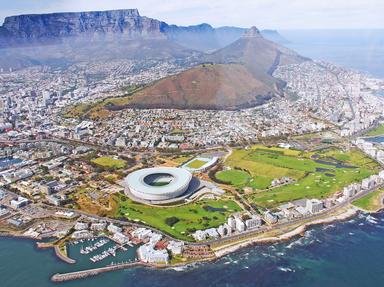Quiz Answer Key and Fun Facts
1. Almost nothing is known about Cape Town's early people who lived in the area before the arrival of which Portuguese explorer in 1488?
2. It wasn't until 1652 that European powers started taking a colonial interest in Cape Town. Which Europeans were the first to establish a large presence in Cape Town in 1652?
3. The South African wine industry got its start in late 17th century Cape Town, when which people introduced wine-growing techniques when they fled Europe?
4. Which 1795 battle saw Cape Town and all of Cape Colony fall into the hands of the British for the first time?
5. In addition to seeing the British regain control of Cape Town, 1806 was also the first occurrence of what now daily event?
6. What was unique about Cape Colony's first elected Parliament in 1854?
7. Which diamond mogul became Prime Minister of Cape Colony in 1890 and fervently pushed pro-British policies often at the stake of native Africans?
8. Upon independence in 1910, Cape Town became the capital of the Union of South Africa. In what famous building did the prime ministers and, later, presidents live until 1984?
9. During the apartheid era, which neighborhood of Cape Town experienced the forced removal in 1966 of tens of thousands of blacks when it was made a whites-only area?
10. Although a popular attraction for decades, which Cape Town landmark did not become a national park until 1998?
Source: Author
Joepetz
This quiz was reviewed by FunTrivia editor
gtho4 before going online.
Any errors found in FunTrivia content are routinely corrected through our feedback system.
